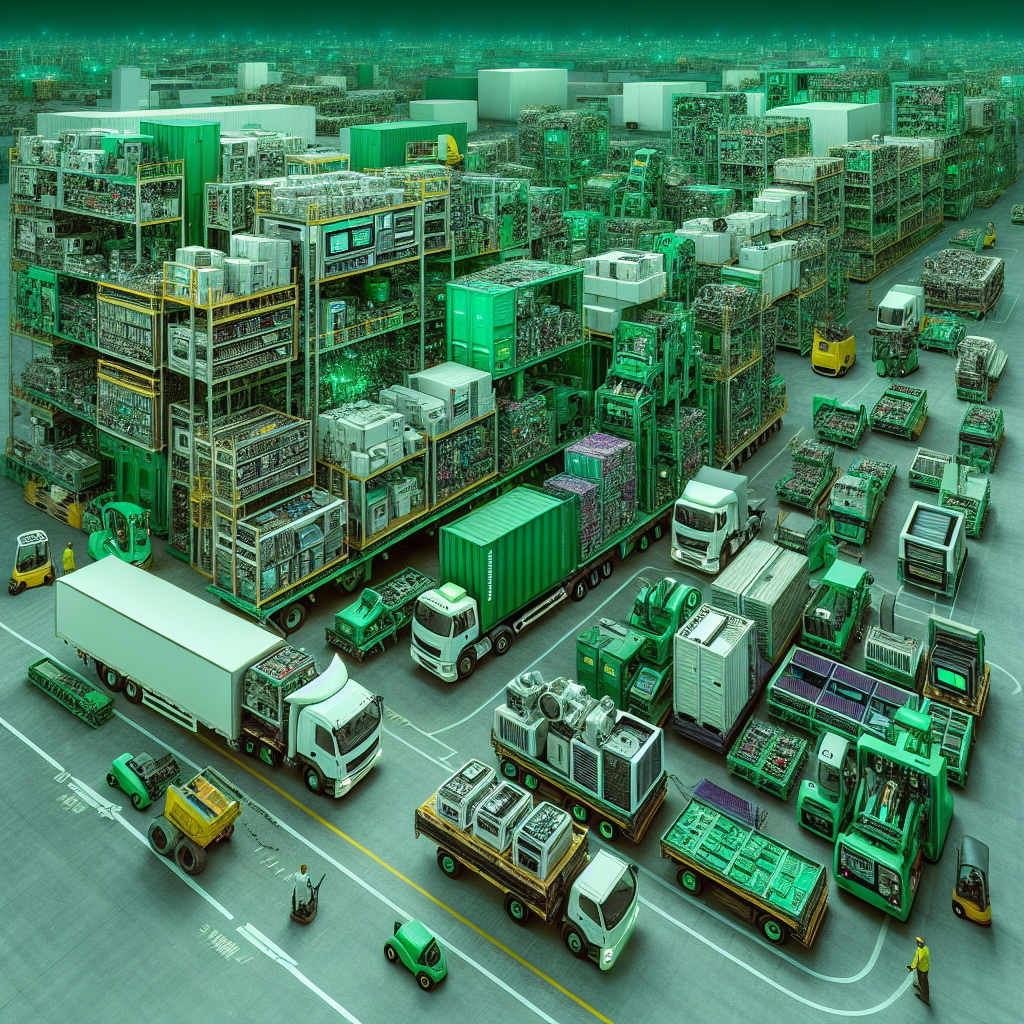Blog Ecobraz Eigre

Reverse logistics of industrial machines with electronic components SP
The reverse logistics of industrial machines with electronic components in São Paulo is essential to ensure proper handling, sustainability, and compliance with current legislation, especially according to Law 12.305/2010 which establishes the National Solid Waste Policy (PNRS). This article addresses the main technical and legal aspects for the correct return and disposal of these equipment in the industrial and business context.
Legal Foundations of Reverse Logistics in São Paulo
Law No. 12,305 of 2010, and Decree No. 7,404/2010 establish the National Solid Waste Policy (PNRS), instituting reverse logistics as an instrument to hold generators responsible for the return of the generated waste, especially electronic waste. In the state of São Paulo, CETESB regulates complementary rules for the safe handling of this waste and the fulfillment of environmental goals.
Furthermore, SINIR (National Information System on Solid Waste Management) provides data and guidance on the correct and transparent management of the reverse chain of industrial and electronic components. Source: sinir.gov.br.
Processes and Stages in the Reverse Logistics of Industrial Machines
Reverse logistics for industrial machines equipped with electronic components involves several technical stages, from safe disassembly, material segregation, to environmentally correct final disposal. It is essential that equipment containing electronic circuits, boards, and microchips be treated to avoid contamination by heavy metals and hazardous substances.
The procedure begins with specialized collection, which must ensure the integrity of the waste and enable forwarding for treatment or reuse. For the collection of electronic waste, the use of specialized services is recommended, which can be scheduled via electronic waste collection. This stage is crucial for the operation of the reverse chain, facilitating reuse and disposal according to standards.
Security and Sanitization of Media and Hard Drives
Industrial machines often store critical data on hard drives or other electronic media. Secure management in the disposal of these components is fundamentally important to guarantee the protection of sensitive information and to comply with data protection legislation.
The secure sanitization of storage devices must follow specific technical protocols, composed of methods for definitive data removal, preventing recovery. Specialized services can be contracted for this purpose, with scheduling available at HD and electronic media sanitization.
Environmental Aspects and Shareholder Responsibility
Proper handling through reverse logistics contributes to reducing the environmental impact derived from electronic industrial waste. Since such waste presents risks due to its chemical composition, improper disposal can cause soil contamination, water pollution, and public health risks.
The commitment to correct disposal must consider effective recycling of valuable materials contained in industrial machines, such as rare metals and semiconductor components, reducing the primary extraction of natural resources. This aligns with ESG practices and current legal obligations.
Conclusion
Reverse logistics for industrial machines with electronic components in São Paulo is a process that depends on strict compliance with environmental legislation, the use of certified systems for collection and treatment, and the implementation of secure protocols for data disposal and sanitization. The adoption of these practices ensures legal compliance, information security, and minimization of environmental impacts.

Deixe um comentário
O seu endereço de e-mail não será publicado. Campos obrigatórios são marcados com *